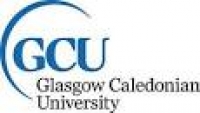






Tuberculosis and cholera are well-established diseases that continue to devastate populations around the world, previously unrecognised infectious human pathogens such as Middle East respiratory syndrome coronavirus (MERS-CoV) and new strains of influenza emerge. For almost a century mankind has relied heavily on vaccines and antimicrobial drugs to either prevent or treat infectious diseases. This approach has largely been successful, but with the discovery of new pathogens and increases in resistance to antimicrobials, the challenges facing microbiologists have never been greater. The programme provides a firm understanding of the impact of infectious disease on human populations worldwide. It takes a scientific approach to the field of clinical microbiology, emphasising the importance of research and development in the area, and exposes you to the latest advances in both the theory and practice of microbiology. The programme provides you with comprehensive theoretical knowledge and hands-on practical experience of clinical microbiology. This will include the principles and practice of bacteriology, virology, parasitology and mycology; focusing on the transmission of pathogens, the disease process, diagnosis, treatment and the prevention of infectious disease.
| Number | Duration |
|---|---|
| 1 | year |
In addition to attaining a firm foundation of theoretical knowledge and an extensive range of practical skills, employment opportunities are enhanced through the development of a series of transferable skills necessary for success in a highly competitive market. Career opportunities can be found in the areas of health and medicine, the life sciences sector and in university and industry research departments, as well as further study towards a PhD.